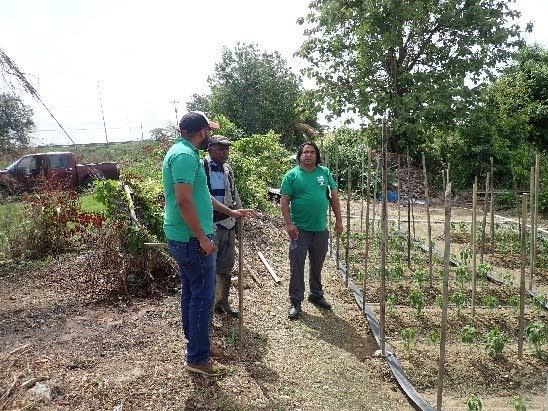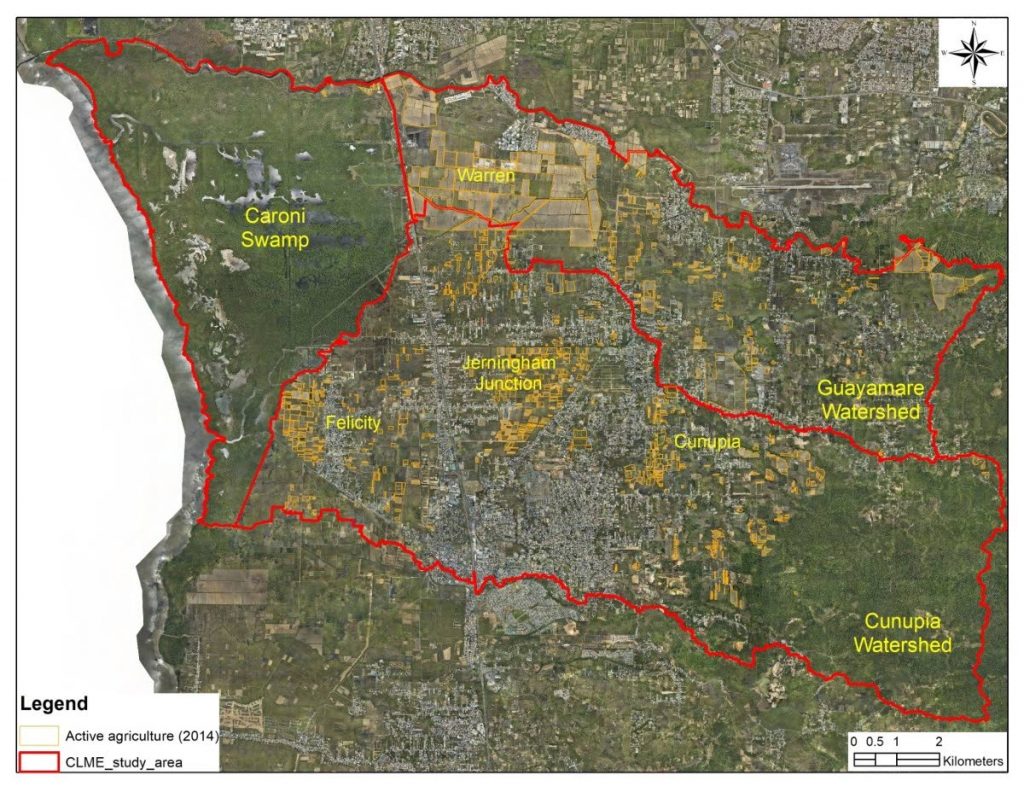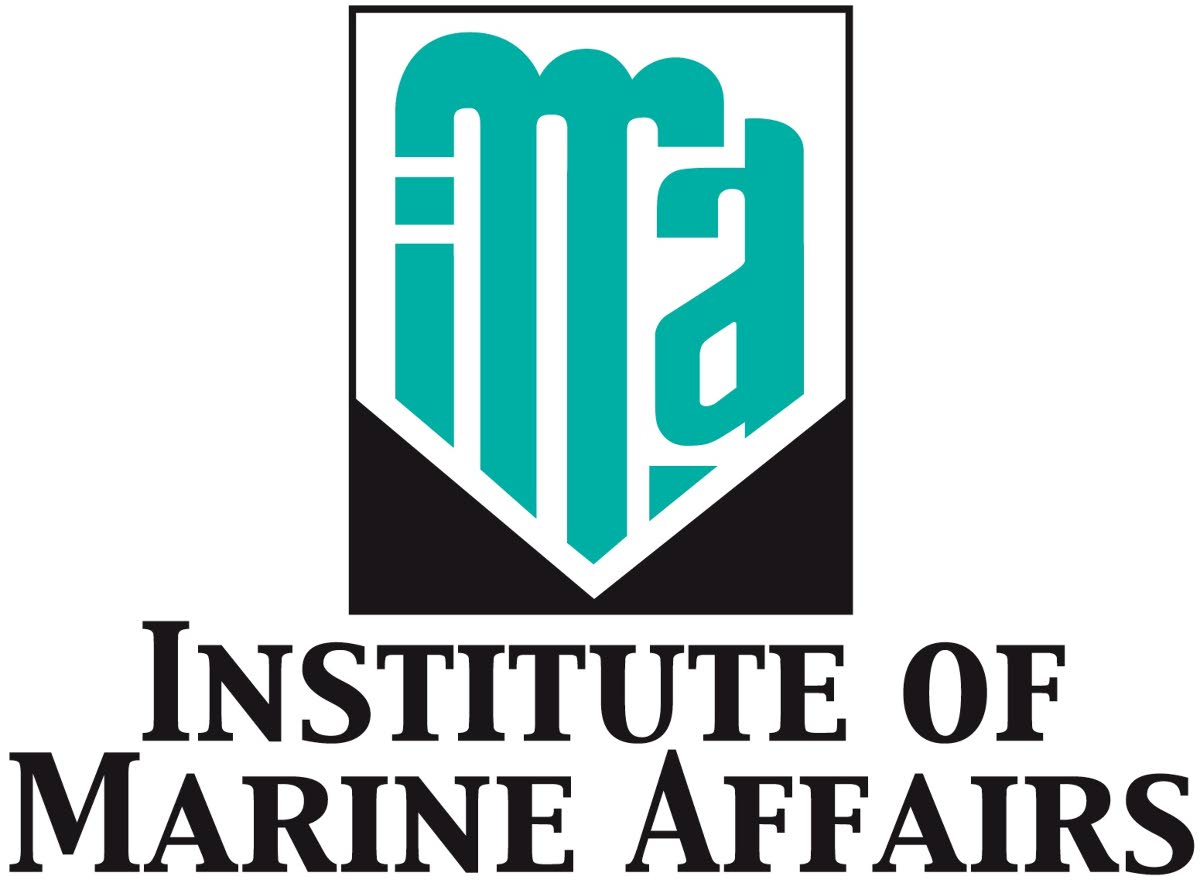One step towards ecosystem-based management

Dr Darryl Banjoo,
Deputy Director (Acting) and Chemist,
Institute of Marine Affairs
Training and sensitisation go a long way in changing one’s mindset. Sometimes we do things without knowing the impact on the environment and ourselves. Thirty years ago farmers would often use agro-chemicals with no special clothing or masks. These chemicals were measured out and mixed by hand in buckets and those same vessels would subsequently be used for drinking water. Spraying of pesticides or weedicides with leaking spray cans that can also come into contact with the skin was common; farmers would simply wipe the chemicals off their skin and drink milk after spaying, in the event of the onset of dizziness. Some of these practices may very well still exist. These were life-threatening practices that went unnoticed. Back then it was also felt that using more fertilisers would result in greater crop yields. Profit was paramount and the environmental consequences of deoxygenated waters or habitat degradation caused by surface runoff of agro-chemicals, was not considered.
It is not only the farming sector, however, that contributes to environmental degradation. The commonality in the majority of rivers in TT is pollution. Often, pollutants include discarded materials and plastics and one will usually notice brown/black-coloured waters with the occasional foul smell. There are multiple sources of pollution from various activities which can be categorised broadly as agricultural, industrial and domestic. Each source requires a different approach for management, some may be very costly requiring the use of expensive structures and equipment such as in treating domestic sewage and industrial effluents.
In TT, the Institute of Marine Affairs (IMA) is the national agency implementing the Ecosystem Based Management (EBM) approach to address the impact of land-based sources of pollutants on critical coastal habitats such as mangrove swamps, as part of a regional project. This project is supported with funding provided by the United Nations Development Programme (UNDP), Global Environmental Fund (GEF) , and the Caribbean Large Marine Ecosystems Project (CLME+). The Caroni Swamp, a Ramsar site, was selected as the study site for the project as it is the largest mangrove forest in Trinidad, supports a wide variety of organisms and provides many livelihood opportunities such as ecotourism and fisheries (fish, oyster and crab) to the surrounding coastal communities. The mangrove system also stabilises the shoreline from coastal erosion and provides climate regulation. The project utilises an EBM approach aimed at reducing organic pollution and pesticides from agricultural activities in the southern section of the Caroni Swamp through the implementation of community-based conservation activities with the stakeholders in the region, mainly farmers. The EBM approach requires that management take a holistic and integrated approach in a bid to sustain the functionality and integrity of the ecosystems that provide services that maintain the balance of life. Utilisation of this framework requires agencies to work collaboratively to preserve the mangrove systems and the related coastal environment that generates environmental benefits of goods and services. Consultation with persons from the community, government, and private sectors are therefore a critical part of the EBM framework.

The IMA’s responsibility in the project was wide and varied. Farming activity at the study sites of the Cunupia and New Guayamare watersheds were identified and mapped. Species harvested for human consumption in the coastal and mangrove areas were assessed to determine suitability for consumption and potential risk to human health. Researchers have on-going work activities analysing levels of pesticides in fish, heavy metals in crabs, as well as conducting bacterial analyses in oyster tissues and shellfish growing waters in the Caroni Swamp. Baseline water and sediment quality were also assessed at intervals, prior to the commencement of the project and after, to determine whether pollution has been reduced on based on the interventions. Utilising the “EpiCollect” software application, farmers were surveyed to determine their knowledge of major crops, soil health, pests and diseases and existing farming practices, including their use of chemicals such as pesticides and fertilisers.
Based on the survey data, training and sensitisation workshops were designed for farmers, firstly on the judicious use of pesticides and fertilisers and secondly on alternatives in the management of economically imprtant crops negatively impacted by pests and diseases in the area. Demonstration sites were established for farmers at Cunupia and Felicity to show them how to use alternatives strategies to the application of high levels of pesticides and fertilisers in order to obtain high yields for selected crops. The aim was the reduction of fertiliser usage and hence the reduction of nutrient pollution runoff, while maintaining agricultural output. The field demonstration and training workshops were facilitated by the University of the West Indies, St Augustine Campus. The project’s successes and lessons will be documented and shared with the wider farming community in the Caroni River Basin to allow for replication and up-scaling in other watersheds. The results of this study will inform policy towards pollution reduction and the preservation of coastal ecosystems thus ensuring sustainable life and livelihoods.
The first training workshop was held at the Shri Krishen Mandir, Katwaroo Street (off Cacandee Road), and Felicity on the July 27, 2020. Two additional workshops were also held at Warrenville Community Centre (222 Southern Main Road) on the August 3-4, 2020. The IMA is encouraging farmers to be a part of these exciting training workshops. The covid19 pandemic health guidelines of social distancing and other measures will be observed at all workshops. Further information can be obtained at the IMA at 634-4291 or at the website at www.ima.gov.tt. We hope to see you there!


Comments
"One step towards ecosystem-based management"